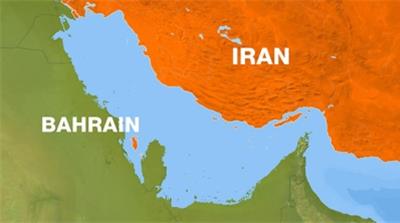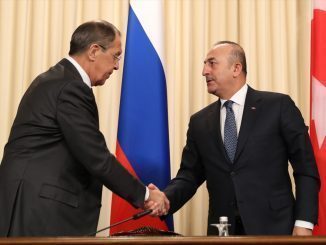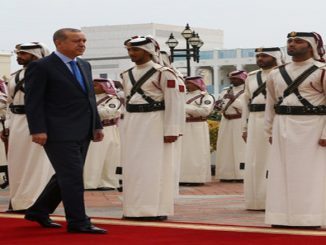
Bahrain’s authorities said they have detained five members of a terrorist cell linked to Iran’s Revolutionary Guard Corps and the so-called Iraqi Hezbollah.
Security forces said that the suspects had received intensive military training in making bombs and carrying out terrorist activities at the camps of IRGC and Iraqi Hezbollah.
Bahraini Security Forces captured the terrorist network two weeks ago in a preemptive strike.
A source at the Ministry of Interior confirmed to Asharq Al-Awsat newspaper the news that the cell is linked to people in Iran and the suspects arrested in Bahrain.
“A secret terrorist plot aided by the so-called Iranian Revolutionary Guard and the Hezbollah terrorist organization was foiled,” said the ministry.
“It targeted the security of the kingdom of Bahrain by plotting to carry out a series of dangerous bombings,” it added.
The ministry announced that its security forces had collected items suspected to be explosives and moved them to a safe location, away from the residential area where they were being stored.
The security forces discovered a number of weapons, communication devices and equipment used in detonating bombs. The police also seized daggers, knives covered with polyurethane bags and various currencies.
Investigations and testimonies of the five members of the cell revealed a series of important security information.
The five members are:
Mohammed Abduljalil Mahdi Jassim Abdullah (28, a private company employee) received military training in Iran that included the use of pistol and automatic weapons, such as Kalashnikov and PKG. He also received training in bomb-making and assembly and in the use of explosives such as TNT and C4. Ali Ahmed al-Musawi, living in Iran, coordinated the training and provided Mohammed with logistical support.
The investigations revealed that when Mohammed returned to Bahrain, he decided with others to use a car repair workshop in Hamad Town to store bomb-making materials and weapons. The group built a hidden room to conceal the contraband. In addition to the weapons and explosives training he received abroad in 2013, the suspect also watched films of bombings conducted by the Hezbollah brigades in Iraq.
Mahmood Jassim Marhoon Mohammed Marhoom (26, a private company employee) received military training in Iran by the Iranian Revolutionary Guard and in Iraq by the Hezbollah brigades.
Jassim Mansoor Jassim Shamloh (25, a private company employee) confessed receiving batteries from the first suspect to be used in bomb-making and remote control devices. He hid the items in his father’s home in Hamad Town until the first suspect asked for them.
Ahmed Mohammed Ali Yousif, 23, confessed providing assistance to the third suspect by transferring the batteries, remote controls and wires for making bombs to his flat with full knowledge of their nature and purpose.
Khalil Hassan Khalil Ibrahim Saeed (20, a student) received a number of batteries and remote controlled bomb detonators from the first suspect who asked him to hide them at his home. He had full knowledge of the nature and purpose of the items.
The Interior Ministry’s counterterrorism investigations continue as part of the ongoing national security operations. The ministry called any citizen who has information about suspicious activity to inform the authorities.
Iran slams Bahrain’s Shia opposition ban
Iran has criticized as “unconstructive” a Bahraini court’s decision to dissolve and seize the funds of the country’s main Shia opposition group, calling the Shia citizens to hold arms against Bahraini regime.
Al-Wefaq party was shut down last month under an emergency court order after the Justice Ministry accused it of undermining the state, spreading sectarianism, and having connections to “terrorist” activities.
“Such actions by the Bahraini government prove that they don’t seek to resolve the existing crises,” Iran’s foreign ministry spokesman Bahram Ghasemi said in a statement late on Sunday.
Bahrain has long accused Iran of fomenting unrest among the island’s Shia civilians, as Iran has always backed opposition movements in Bahrain and called for demonstrations against current Bahraini regime.
Iran also backs Shia groups that spread violence and unrest in the area, such as Houthi militia in Yemen and Hezbollah in Lebanon.
“Surely they know that the aggression against Ayatollah Sheikh Isa Qassem is a red line… that will leave no option for the people but to resort to armed resistance,” said Qassem Suleimani, head of the elite Revolutionary Guards’ overseas operations arm, the Quds Force.



